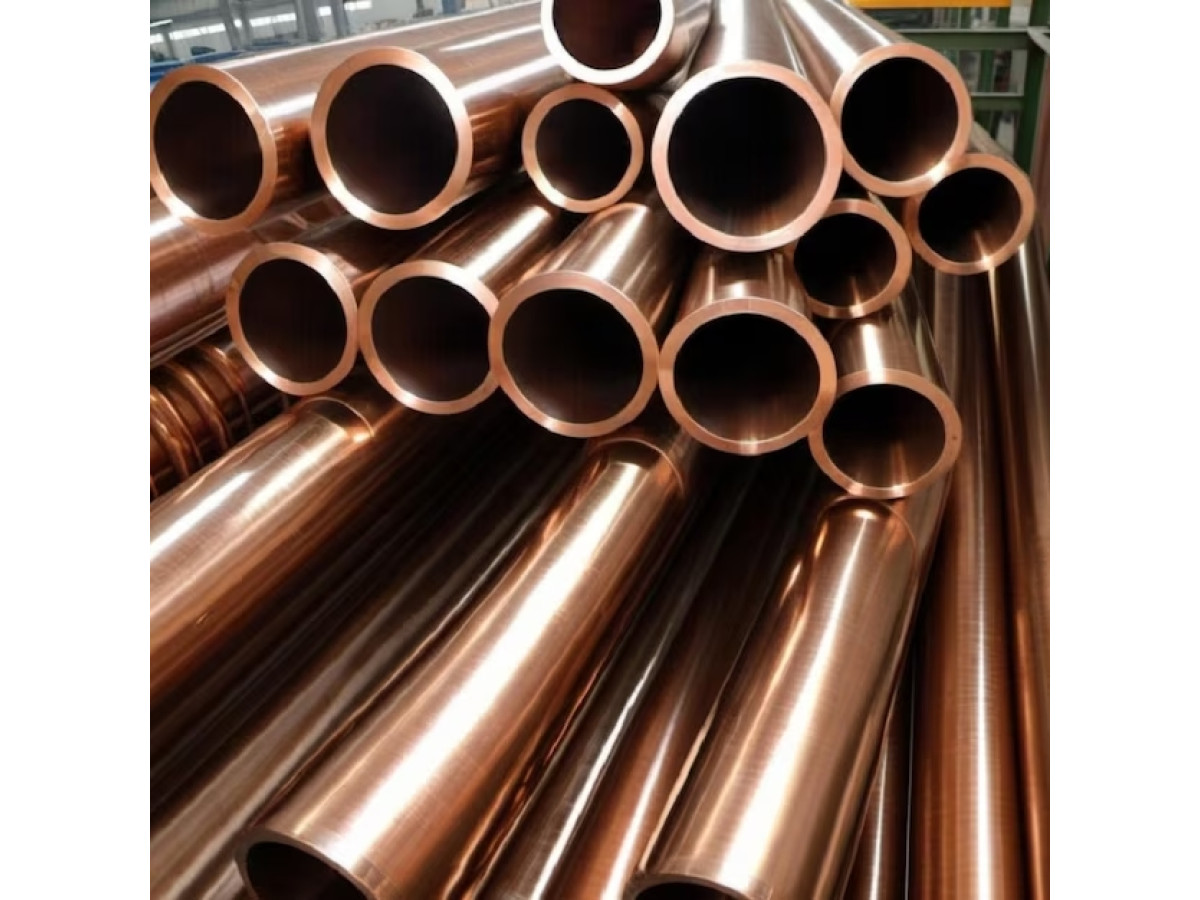Copper is one of the oldest metals, which has found wide application in various industries, including construction. In this article, we will see the advantages and types of copper pipes. We will also tell you in detail how to correctly select and install copper pipes for water supply and heating systems.
Types of copper pipes
Copper pipes are one of the most popular materials for water supply systems, heating, air conditioning and other technical communications. Depending on the application and required characteristics, copper pipes are divided into several types:
- Soft Copper Pipes: These pipes are made from soft copper and are highly flexible. They are easy to install and suitable for use in cold and hot water supply systems, as well as for copper soldering connections.
- Solid Copper Pipes: These pipes are made from solid copper and have a more rigid structure. They are commonly used in heating, air conditioning and other technical systems where high strength and durability are required.
- Tinned Copper Pipes: Tinned pipes are coated with a thin layer of tin, which provides corrosion protection and makes the soldering process easier. They are used in drinking water systems and other applications where system cleanliness and reliability are important.
- Shielded Copper Pipes: Shielded pipes have an additional protective layer that provides protection from electromagnetic interference. They are widely used in power electronics and telecommunications systems.
- Copper pipes with anti-corrosion coating: These pipes have a special anti-corrosion coating, which increases their resistance to aggressive environments such as chemicals or high humidity.
Each type of copper pipe has its own characteristics and application, so before choosing, it is necessary to take into account the requirements of a specific project and operating conditions.
How to choose copper pipes?
When selecting copper pipes for a specific project, there are several key factors to consider to ensure the correct selection and optimal system performance. Here are some important aspects to consider when choosing copper pipes:
- Type of Copper: Earlier I have mentioned different types of copper pipes such as soft, hard, tinned, shielded and anti-corrosion coated. The choice of copper pipe type depends on the goals of the project, operating conditions and requirements for strength and durability.
- Diameter and wall thickness: It is important to select the correct diameter and wall thickness of copper pipes in accordance with the volume of liquid or gas being transported, as well as the pressure in the system. It is necessary to select pipes with appropriate characteristics to ensure reliable operation of the system.
- Compliance with standards and regulations: Ensure that the copper pipes you select meet the required quality and safety standards. For example, the presence of certificates of conformity will help ensure the reliability and quality of products.
- Budget: Finally, an important factor when choosing copper pipes is value for money. Find the optimal solution that will satisfy the project requirements, but will not exceed budget constraints.
Considering all these aspects will help you choose the right copper pipes that best suit the needs of your project and ensure its reliable and efficient operation.
Conclusion
Copper is a long-known material in construction, which is successfully used in various engineering systems due to its outstanding characteristics. Here are some benefits of using copper pipes:
- Strength and durability: Copper is a very strong and durable material that is not subject to corrosion and is highly resistant to various external influences. This ensures long service life of copper pipes and minimal maintenance costs.
- Resistant to high temperatures and pressure: Copper can withstand high temperatures and pressures, making it an ideal material for heating and hot water systems.
- Germicidal properties: Copper has germicidal properties, which helps reduce the risk of bacteria and microorganisms developing in the water supply, ensuring clean and safe water.
- Excellent thermal conductivity: Copper is one of the best thermal conductors among metals, which ensures efficient and rapid heat distribution in the heating system.
- Aesthetics and versatility: Copper pipes have an attractive appearance and can be used in various types of interiors, giving the room a stylish and modern look.
It is important to note that the selection and installation of copper pipes must be carried out by qualified specialists in compliance with all requirements and standards. Properly selected and installed copper pipes will not only ensure reliable operation of the system, but will also increase the overall value and convenience of your home or work space!

